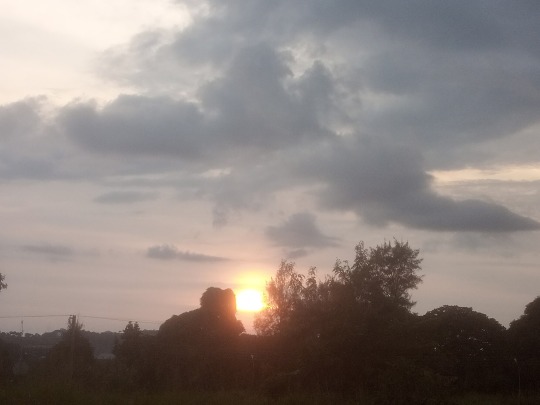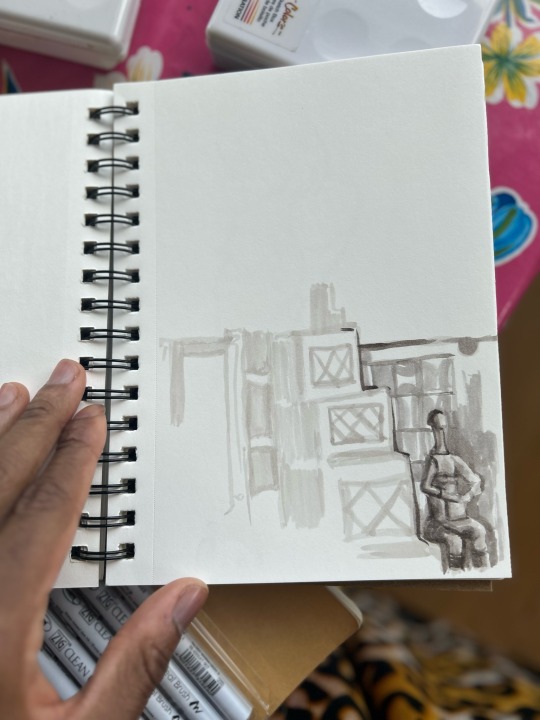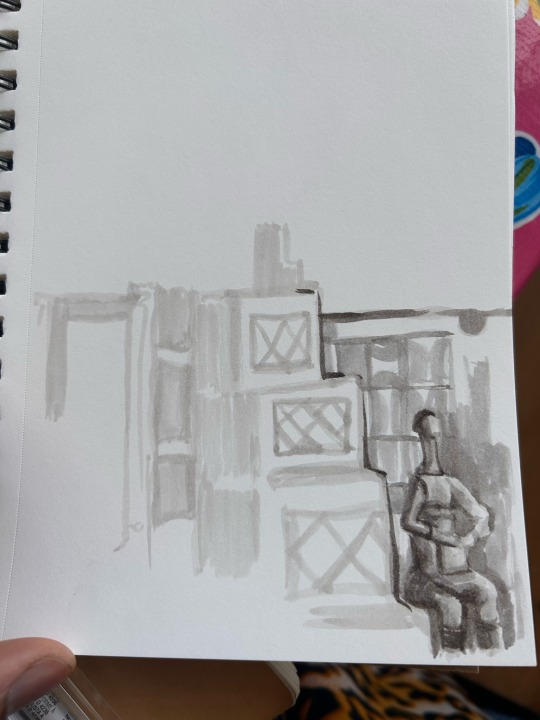#Nsukka
Text
New Head of Personnel Management Takes the Helm in Nsukka LGA
Nsukka Local Government Area (LGA) in Enugu State has welcomed a new Head of Personnel Management (HPM), Mrs. Martina Mgbosoro Ugwuoke. She assumed office, taking over from the former HPM, Mrs. Dorothy Okeke.
Mrs. Ugwuoke, a native of Ovoko in Igbo-Eze South LGA, is married to Obimo in Nsukka LGA.
Her appointment marks a new chapter in the administrative leadership of Nsukka LGA, which has been…
0 notes
Text
Ari Art


1 note
·
View note
Photo
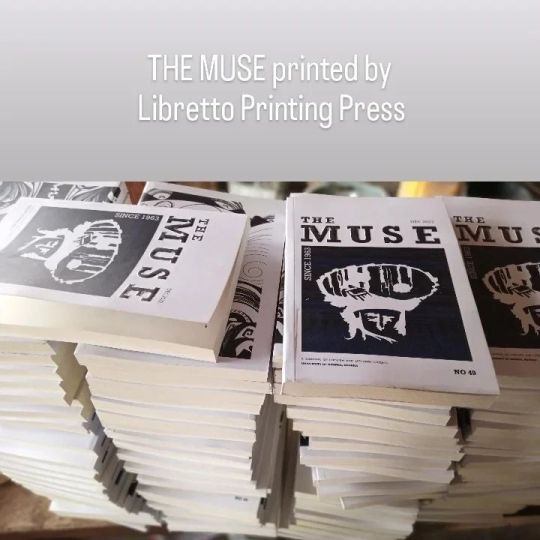
THE MUSE: A Journal of English and Literary Studies, University of Nigeria, Nsukka. Printed by Libretto Printing Press, an imprint of Libretto Publishers Limited. #librettoprintingpress #themuse #universityofnigeriansukka #nsukka (at Owode Oyo Town) https://www.instagram.com/p/CnMK5RYKm0E/?igshid=NGJjMDIxMWI=
0 notes
Text
Actress Rachel Okonkwo Networth 2023
Biography Of Actress Rachel Okonkwo (Nkolika Nwa Nsukka), Networth, Marriage 2023
Rachael Okonkwo Nnenna popularly known as Nkoli Nwa Nsukka is a Nollywood actress, model, singer, dancer and a philanthropist who became very popular in the Nigeria film industry otherwise known as Nollywood after being featured with a lead role in a movie titled “Nkolika Nwa Nsukka”
Her Real Age
She was born on…

View On WordPress
0 notes
Text
IJMB Study Centres in Enugu, Universities, Fees
ARE THERE ANY IJMB CENTERS IN ENUGU STATE?
THE CENTRE FOR PRE-VARSITY EDUCATION, NIGERIA HAS AFFILIATED IJMB STUDY CENTRES IN ENUGU STATE. WE ADMIT STUDENTS TO VARIOUS ACCREDITED IJMB STUDY CENTERS IN ENUGU STATE.
IJMB STUDY CENTRES IN ENUGU STATE.
Our partnering IJMB Study Centres in Enugu State have a limited number of students they can accommodate. Hence, earlier registration is recommended…

View On WordPress
#Does unn accept IJMB#Enugu State University IJMB#How to register for IJMB in Enugu#IJMB study centres in Enugu#IJMB universities in Enugu#Nsukka IJMB#University of Nigeria#Unn#Where is IJMB located in Enugu
0 notes
Text

CULTURE SUMMARY: IGBO
By IFI AMADIUME
ETHNONYMS
Ala Igbo, Ani Igbo, Ibo, Ndi Igbo.
IDENTIFICATION AND LOCATION
Igbo is the language spoken in Ala Igbo or Ani Igbo (Igboland) by the people who are collectively referred to as “Ndi Igbo”; their community is known as “Olu no Igbo” (“those in the lowlands and uplands”). Before European colonialism, the Igbo-speaking peoples, who shared similarities in culture, lived in localized communities and were not unified under a single cultural identity or political framework, although unifying processes were present via expansion, ritual subordination, intermarriage, trade, cultural exchange, migration, war, and conquest. Villages and village groups were generally identified by distinct names of their ancestral founders or by specific names such as Umuleri, Nri, Ogidi, Nnobi, Orlu, Ngwa, Ezza, and Ohaffia.
There are several theories concerning the etymology of the word “Igbo” (wrongly spelled “Ibo” by British colonialists). Eighteenth-century texts had the word as “Heebo” or “Eboe,” which was thought to be a corruption of “Hebrew.” “Igbo” is commonly presumed to mean “the people.” The root - bo is judged to be of Sudanic origin; some scholars think that the word is derived from the verb gboo and therefore has connotations of “to protect,” “to shelter,” or “to prevent”—hence the notion of a protected people or a community of peace. According to other theorists, it may also be traced to the Igala, among whom onigbo is the word for “slave,” oni meaning “people.”
Igbo-speaking peoples can be divided into five geographically based subcultures: northern Igbo, southern Igbo, western Igbo, eastern Igbo, and northeastern Igbo. Each of these five can be further divided into subgroups based on specific locations and names. The northern or Onitsha Igbo are divided into the Nri-Awka of Onitsha and Awka; the Enugu of Nsukka, Udi, Awgu, and Okigwe; and those of the Onitsha town. The southern or Owerri Igbo are divided into the Isu-Ama of Okigwe, Orlu, and Owerri; the Oratta-Ikwerri of Owerri and Ahoada; the Ohuhu-Ngwa of Aba and Bende; and the Isu-Item of Bende and Okigwe. The western Igbo (Ndi Anioma, as they like to call themselves) are divided into the northern Ika of Ogwashi Uku and Agbor; the southern Ika or Kwale of Kwale; and the Riverrain of Ogwashi Uku, Onitsha, Owerri, and Ahoada. The eastern or Cross River Igbo are divided into the Ada (or Edda) of Afikpo, the Abam-Ohaffia of Bende and Okigwe, and the Aro of Aro. The northeastern Igbo include the Ogu Uku of Abakaliki and Afikpo.

Today Igbo-speaking individuals live all over Nigeria and in diverse countries of the world. As a people, however, the Igbo are located on both sides of the River Niger and occupy most of southeastern Nigeria. The area, measuring over 41,000 square kilometers, includes the old provinces of Onitsha, Owerri, East Rivers, Southeast Benin, West Ogoja, and Northeast Warri. In contemporary Nigerian history, the Igbo have claimed all these areas as the protectorate of the “Niger Districts.” Thus began the process of wider unification and incorporation into wider political and administrative units. Presently, they constitute the entire Enugu State, Anambra State, Abia State, Imo State, and the Ahoada area of Rivers State; Igbo-speaking people west of the Niger are inhabitants of the Asaba, Ika, and Agbo areas of Delta State.

#african#afrakan#kemetic dreams#africans#brownskin#brown skin#afrakans#african culture#igbos#Ndi Igbo#Ani Igbo#Ala Igbo#Umuleri#Nri#Ogidi#Nnobi#Orlu#Ezza#Ohaffia#nigerian#niger#niger delta
34 notes
·
View notes
Text
“When I was in primary school in Nsukka, a university town in southeastern Nigeria, my teacher said at the beginning of term that she would give the class a test and whoever got the highest score would be the class monitor. Class monitor was a big deal. If you were class monitor, you would write down the names of noisemakers each day, which was heady enough power on its own, but my teacher would also give you a cane to hold in your hand while you walked around and patrolled the class for noisemakers. Of course you were not allowed to actually use the cane. But it was an exciting prospect for the nine-year-old me. I very much wanted to be class monitor. And I got the highest score on the test.
Then, to my surprise, my teacher said the monitor had to be a boy. She had forgotten to make that clear earlier; she assumed it was obvious. A boy had the second-highest score on the test. And he would be monitor.
What was even more interesting is that this boy was a sweet, gentle soul who had no interest in patrolling the class with a stick. While I was full of ambition to do so.
But I was female and he was male and he became class monitor.”
-Chimamanda Ngozi Adichie, We Should All Be Feminists.
88 notes
·
View notes
Text
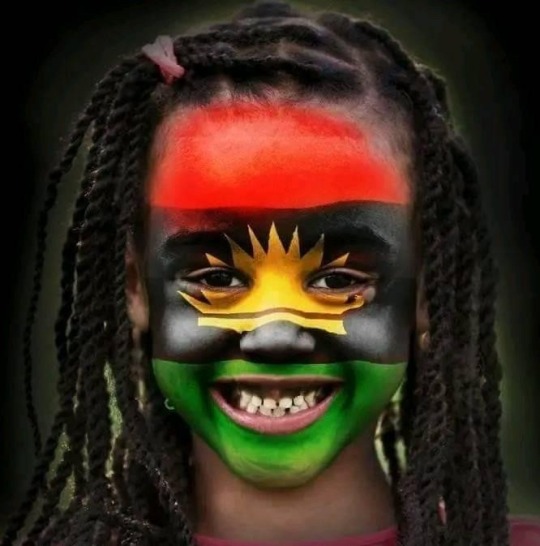
FACTS ABOUT BIAFRA (1967-1970)
*Biafra is a country that existed in West Africa.
*It is the first African country to build and successfully launch a rocket system.
*It was the first African country to build a submarine.
*It had the fastest growing economy at 40% per annum.
*It is one of the only regions in Africa to have a pyramid ( at nsude)
*It was the only country in the world to invest 45% of it's economy into education.
*During the Nigeria/biafra war, 3.5 million people lost their lives, mainly due to starvation.
* Nsibidi of biafra, is one of the oldest writing systems in the world.
*Biafra is home to one of the oldest civilization on Earth, the Igbo civilization.
*The oldest iron smelting site in the world is located in biafra (nsukka).
*The biafran pound remains the only African country to withstand Western sanctions and didn't loose value.
*During the civil war, biafra had cars that were powered by palm oil.
#Amazing
#africa
#black
#truth
101 notes
·
View notes
Text
“Freedom of Speech”, Chimamanda Ngozi Adichie’s Reith Lecture, 2022
Full transcript, with a link to watch at the end of the post.
“It’s a bit disturbing to have people be forced to clap for me. And I’m sorry. Thank you all for being here. I’m really happy to be here and I’m happy that you’re here.
It is a privilege for me to be here today to join in the distinguished tradition of the BBC Reith Lectures. When I was growing up in the 1980s on the campus of the University of Nigeria in Nsukka, I was a very curious child keen to hear every story, especially those that were no business of mine. And so, as a result, I sharpened very early on in life the skill of eavesdropping, a pastime at which I am still quite adept.
I noticed that each time my parents’ friends visited, they would sit in the living room talking loudly, except for when they criticised the military government. Then, they spoke in whispers. That whispering, apart from testing my eavesdropping capabilities, was striking. Why speak in such hushed tones when in the privacy of our living room, drinking brandy, no less? Well, because they were so attuned to a punitive authoritarian government that they instinctively lowered their voices, saying words they dared not say in public.
We would not expect this whispering in a democracy. Freedom of expression is after all, the bedrock of open societies. But there are many people in Western democracies today who will not speak loudly about issues they care about because they are afraid of what I will call, “social censure,” vicious retaliation, not from the government, but from other citizens.
An American student once accosted me at a book reading. “Why,” she asked angrily, “Had I said something in an interview?” I told her that what I had said was the truth, and she agreed that it was and then asked, “But why should we see it, even if it’s true?” At first, I was astonished at the absurdity of the question, then I realised what she meant. It didn’t matter what I actually believed. I should not have said it because it did not align with my political tribe. I had desecrated the prevailing orthodoxy. It was like being accused of blasphemy in a religion that is not yours. That young woman’s question, “Why should we say it, even if it’s true?” illustrates what the writer Ayad Akhtar has called a moral stridency, “a fierce, perhaps even punitive adherence to the collectively-sanctioned attitudes and behaviours of this era.”
To that, I would add, that this moral stridency is in fact, always punitive. We now live in broad settled ideological tribes. We no longer need to have real discussions because our positions are already assumed, based on our tribal affiliation. Our tribes demand from us a devotion to orthodoxy and they abide not reason, but faith. Many young people are growing up in this cauldron afraid to ask questions for fear of asking the wrong questions. And so, they practise an exquisite kind of self-censorship. Even if they believe something to be true or important, they do not say so because they should not say so.
One cannot help but wonder in this epidemic of self-censorship, what are we losing and what have we lost? We are all familiar with stories of people who have said or written something and then, faced a terrible online backlash. There is a difference between valid criticism, which should be part of free expression, and this kind of backlash, ugly personal insults, putting addresses of homes and children’s schools online, trying to make people lose their jobs.
To anyone who thinks, “Well, some people who have said terrible things, deserve it,” no. Nobody deserves it. It is unconscionable barbarism. It is a virtual vigilante action whose aim is not just to silence the person who has spoken but to create a vengeful atmosphere that deters others from speaking. There is something honest about an authoritarianism that recognises itself to be what it is. Such a system is easier to challenge because the battle lines are clear. But this new social censure demands consensus while being wilfully blind to its own tyranny. I think it portends the death of curiosity, the death of learning and the death of creativity.
No human endeavour requires freedom as much as creativity does. To create, one needs a kind of formless roving of the mind, to go nowhere and anywhere and everywhere. It is from that swell that art emerges. The German writer, Gunter Grass, once reflected on his writing process with these words: “The barriers fell, language surged forward, memory, imagination, the pleasure of invention.” As a writer, I recognised this intimately. As a reader, I have often felt the magic of literature, that sudden internal shiver while reading a novel, that glorious shock of mutuality, a sense of wonder that a stranger’s words could make me feel less alone in the world.
Literature shows us who we are, takes us into history, tells us not just what happened but how it felt and teaches us, as an American Professor once put it, about things that are “not googleable.” Books shape our understanding of the world. We speak of “Dickensian London.” We look to great African writers like Aidoo and Ngugi to understand the continent and we read Balzac for the subtleties of post-Napoleonic France.
Literature deeply matters and I believe literature is in peril because of social censure. If nothing changes, the next generation will read us and wonder, how did they manage to stop being human? How were they so lacking in contradiction and complexity? How did they banish all their shadows?
On a calm morning in New York this August, Salman Rushdie was attacked while just about to speak, ironically, on the freedom of speech. Imagine the brutal, barbaric intimacy of a stranger standing inches from you and forcefully plunging a knife into your face and your neck multiple times, because you wrote a book. I decided to re- read Rushdie’s books, not only as an act of defiant support but as a ritualized reminder that physical violence in response to literature can never, ever be justified.
Rushdie was attacked because in 1989, after his novel, The Satanic Verses was published, the Iranian regime declared it offensive and condemned not just Rushdie but all his publishers, to death. Horrors, of course, then followed: His Italian translator was stabbed, his Norwegian publisher was shot, and his Japanese translator, Hitoshi Igarashi, was murdered in Tokyo. Here is a question I’ve been thinking about: would Rushdie’s novel be published today? Probably not. Would it even be written? Possibly not.
There are writers like Rushdie who want to write novels about sensitive subjects, but are held back by the specter of social censure. Publishers are wary of committing secular blasphemy. Literature is increasingly viewed through ideological rather than artistic lenses. Nothing demonstrates this better than the recent phenomenon of “sensitivity readers” in the world of publishing, people whose job it is to cleanse unpublished manuscripts of potentially offensive words.
This, in my mind, negates the very idea of literature. We cannot tell stories that are only light when life itself is light and darkness. Literature is about how we are great and flawed. It is about what H. G. Wells has called ‘the jolly coarseness of life.’ To that I would add that just coarseness alone will do, it need not be jolly.
While I insist that violence is never an acceptable response to speech, I do not deny the power of words to wound. Words can break the human spirit. Some of the deepest pain I have experienced in my life have come from words that somebody said or wrote, and some of the most beautiful gifts I have received have also been words. It is precisely because of this power of words that freedom of speech matters.
‘Freedom of speech.’ Even the expression itself has sadly taken on a partisan tribal tint. It is often framed, and I will put it crudely, as “say whatever you want” versus, “consider the feelings of others.” This, though, is too stark a dichotomy.
I cannot keep count of all the books that have offended me, infuriated me, disgusted me, but I would never argue that they not be published. When I read something scientifically false, such as that drinking urine cures cancer, or something gratuitously hurtful to human dignity, such as that gay people should be imprisoned for being gay, I desperately long to banish such ideas from the world. Yet I resist advocating censorship. I take this position as much for reasons of principle as for practicality.
I believe deeply in the principle of free expression, and I believe this particularly because I am a writer and a reader, and because literature is my great love and because I have been formed and inspired and consoled by books. Had any of those books been censored, I would perhaps today be lost.
My practical reason, we could also call it my selfish reason, is that I fear the weapon I advocate to be used against someone else might one day be used against me. What today is considered benign could very well become offensive tomorrow, because the suppression of speech is not so much about the speech itself, as it is the person who censors. American high school boards are today engaged in a frenzy of book banning, and the process seems arbitrary. Books that have been used in school curriculums for years with no complaints have suddenly been banned in some states, and I understand that one of my novels is in this august group.
I confess that there are some books I would fantasize about banning. Books that deny the Holocaust or the Armenian genocide, for example, because I detest the denial of history. But what if someone else’s fantasy was to ban a book about the Deir Yassin massacre of Palestinians by Zionists in 1948? Or a book about the Igbo coalminers massacred in Nigeria by the British colonial government in 1949? Above principle and pragmatism, however, is the reality that censorship very often does not achieve its objective. My first instinct, on learning that a book has been banned, is to seek it out and read it.
And so, I would say, do not ban them, answer them. In this age of mounting disinformation all over the world, when it is easy to dress up a lie so nicely that it starts to take on the glow of truth, the solution is not to hide the lie but to expose it, and scrub from it, its false glow. When we censor the purveyors of bad ideas, we risk making them martyrs, and the battle with a martyr can never be won.
I read newspapers from both sides of the political spectrum. I am, by the way, still puzzled that newspapers, ostensible bastions of objectivity, are politically differentiated. And I often say when I am feeling a little sanctimonious, that I am interested in the ideas of people who disagree with me because I believe that it is good to hear different sides of an issue. But the truth is that I am interested in their ideas because I want to understand them properly and therefore be better able to demolish them.
I believe that the answer to bad speech is more speech, and I recognize how simplistic, even flippant, that can sound. This is not to suggest that one should be allowed to say absolutely anything at any time, which to me is a juvenile position, for being fantastical and detached from reality. Free speech absolutism would be appropriate only for a theoretical world inhabited by animated ideas rather than humans.
Some speech restrictions are necessary in a civilized world. After the Second World War, when countries gathered to draft the Universal Declaration of Human Rights, most agreed that “incitement to violence,” should be punished, but the Soviet Bloc wanted to add “incitement to hatred,” citing the Nazis as an example, which on the surface was reasonable. But their opponents suspected, rightly, that “incitement to hatred,” would end up being interpreted so widely as to include any criticism of the government.
This raises the question: who decides just how narrow and how clear restrictions should be? The nineteenth century English philosopher, John Stuart Mill, wrote that all silencing of discussion is an assumption of infallibility, and with all due respect to the Pope, nobody is infallible. So, who decides what should be silenced?
Mahatma Gandhi, after he was arrested for sedition, wrote: “Affection cannot be manufactured or regulated by law. If one has no affection for a person or system, one should be free to give the fullest expression to his disaffection, so long as he does not contemplate, promote or incite to violence.”
Most people would agree. But what about speech that does not directly incite violence but has nevertheless led to deaths by suicide, as has happened with people is so harangued on social media, so insulted and abused, that they take their own lives? I, by the way, use the word ‘violence,’ assuming that its meaning is self-evident. But is it really? For what is to be said of the idea prevalent today that speech does not merely incite violence – the kind of physical act as suffered by Salman Rushdie – but that speech itself IS violence?
The expression, ‘the answer to bad speech is more speech,’ in its beguiling simplicity, also fails to consider a central motif, which is power. Who has access? Who is in a position to answer bad speech with more speech? In arguing for the freedom of speech, one must consider all the limitations placed by unequal power relations, such as a mainstream press owned by fewer and fewer wealthy people, which naturally excludes multiple voices.
Even the definition of speech can be limiting, such as when the US Supreme Court decided, in the case of Citizens United, that money is speech. All those not wealthy cannot then ‘answer back,’ as it were. Most of all, the Social Media companies, with their mystical algorithms and their lack of transparency, exert enormous control on who can speak and who cannot, by suspending and censoring their users, something that has been called ‘moderation without representation.’
Yes, these companies are private but considering the outsize influence they have in modern society, they really should be treated more like a public utility. There are those who think that, because of these sorts of power limitations, we should robustly censor speech in order to create tolerance. A well-intentioned idea, no doubt. But as the Danish lawyer, Jacob Mchangama, has argued: “To impose silence and call it tolerance does not make it so. Real tolerance requires understanding. Understanding comes from listening. Listening presupposes speech.”
For all the nobility in the idea of censorship for the sake of tolerance, it is also a kind of capitulation, an acceptance that the wounded cannot fight back. When an anti-black poster was once displayed on the campus of Arizona State University, the university chose not to expel the perpetrators. Instead, a forum was organized, the poster discussed, and an overwhelming majority of students expressed their disapproval. One of the black students who organized this said, “When you get a chance to swing at racism, and you do, you feel more confident about doing it the next time.”
A troubling assumption underlying the idea of censorship for the sake of tolerance is that good people don’t need free speech, as they cannot possibly want to say anything hurtful to anyone. Free speech is therefore for the bad people who want it as a cover to say bad things. The culture of social censure today has, at its center, a kind of puritanism that expects us to be free of all flaws, like angels, and angels do not need free speech.
Of course, we all need free speech. Free speech is indeed a tool of the powerful, but it is also crucially the language of the powerless. The courageous protests by Iranian women, the ENDSARS protest in Nigeria, where young people rallied against police brutality, the Arab Spring: all wielded speech. Dissent is impossible without the freedom of speech.
The biggest threat to speech today is not legal or political, but social. This is not a new idea, even if its present manifestation is modern. That famed chronicler of American life, Alexis de Tocqueville, believed that the greatest dangers to liberty were not legal or political, but social. And when John Stuart Mill warned against the “tyranny of the prevailing opinion and feeling,” it reads as though he foresaw the threat that orthodoxy poses today. The solution to this threat can only be collective action. Social censure creates not just a climate of fear but also a reluctance to acknowledge this fear. It is only human to fear a mob, but I would fear less if I knew my neighbor would not stay silent were I to be pilloried. We fear the mob but the mob is us.
I want to make a case today for moral courage, for each of us to stand for freedom of speech, to refuse to participate in unjustified censorship, and to make much wider, the boundaries of what can be said. We must start again to assume good faith. In public discourse today, the assumption of good faith is dead and speech is by default interpreted in the most uncharitable way. Yes, some people are not of good faith which, I suppose, is what that modern word “troll” means, but we cannot, because some people do not act in good faith, then decide that the principle of good faith itself is dead. It is instructive to be reminded of American President James Madison’s words: “some degree of abuse is inseparable from the proper use of everything.”
We must start again to make our case, respectfully and factually. We must agree that neither sanctimonious condescension on the left nor mean-spirited hectoring on the right qualify as political arguments. We must insist not only on truth but also nuance. An argument for any social justice movement, for example, is stronger and more confident when it is nuanced because it does not feel the need to simplify in order to convince.
We must hear every side and not only the loudest side. While social media has re-shaped the traditional power dynamic by giving some access to the powerless, it has also made it easy to mistake the loudest voices for the truest. We must protect the values of disagreement, and agree that there is value in disagreement. And we must support the principle of free expression when it does not appeal to our own agenda, difficult as that may be, and I find it particularly so.
We must wean ourselves of the addiction to comfort. When I first left Nigeria to attend university in the US, I quickly realized that in public conversations about America’s difficult problems – like income inequality and race – the goal was not truth, the goal was to keep everyone comfortable. And so, people pretended not to see what they saw, things were left unsaid, questions unasked, and ignorance festered. This unwillingness to accept the discomfort that honesty can bring is in its own way a suppression of speech. Some Americans argue, for example, that students today should not be taught about the racist Jim Crow laws of the 1950s, because it will make them uncomfortable. And so, they prefer the disservice to young people of making them ignorant of their own history.
We must stop assuming that everyone knows, or should know, everything. I was once struck by how quickly an American journalist was fired from her job for saying something racist. Little was made public about exactly what it was she had said, and this not only gave a certain unearned power to her words, but also darkly suggested that perhaps they contained an element of truth. The public was also cheated of its right to hear, and perhaps, potentially learn. What was said? Why was saying it wrong? What should have been said instead?
We must demand that people behave on social media only as they would in real life, and we must also demand reasonable social media reforms such as the removal of anonymity, or linking advertising only to accounts with real names, which would provide an incentive to promote voices of actual people and not amoral bots.
What if each of us, but particularly those with voices, gatekeepers, opinion shapers, political and cultural leaders, editors, social media influencers, across the political spectrum, were to agree on these ideas as broad rules to follow? A coalition of the reasonable would automatically moderate extreme speech. Is it naïve? Perhaps. But a considered embrace of naivety can be the beginning of change. The internet was after all designed to create a utopia of human connection. A naïve idea if ever there was one, but it still brought about the most significant change in how human beings communicate.
Sometimes it takes a crisis for a naïve idea to become realistic. President Roosevelt’s New Deal itself was based on ideas that went against the prevailing consensus of the time and were generally considered naïve and impossible. But when crisis came in the form of the Great Depression, it suddenly became possible.
Social censure is our crisis today. George Orwell wrote that, “If large numbers of people are interested in freedom of speech, there will be freedom of speech, even if the law forbids it.” To that I would add: We can protect our future. We just need moral courage.
Thank you.”
212 notes
·
View notes
Text

Other Worlds: An Anthology of Diverse Short Fiction
Short stories by writers from marginalised and/or underrepresented communities or backgrounds exploring the theme of "Other Worlds"
KICKSTARTER NOW LIVE and SUBMISSIONS OPEN!
Other Worlds is the second print anthology brought to you by A Coup of Owls Press - home of online quarterly anthologies from creators from marginalised and/or underrepresented communities or backgrounds.
As a follow-up to Other & Different, which explored what it is to be othered, Other Worlds will be an exploration of places, situations, communities, etc, that are other. These might be actual other worlds in a science or speculative fiction genre, or a community, or a situation in the historical or modern world that feels or is made to feel alien. Encompassing a variety of styles and genres, Other Worlds will feature stories focused on the theme of being part of those othered communities - however the writers wish to interpret that.
THE STORIES
We are thrilled to confirm that we have invited five fantastic authors to contribute to Other Worlds, and our submissions for the remaining stories are open from 1st October to 15th November 2023.
For more submissions guidelines and to submit, check out our submissions page.
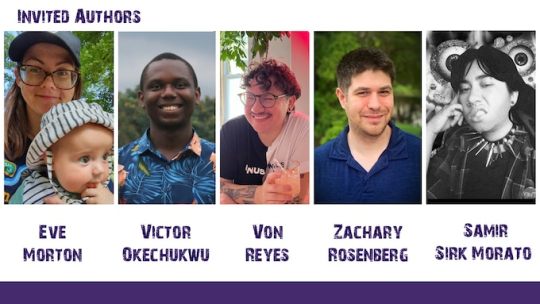
Eve Morton:
Strange people with strange purposes gather in Haven (Science Fiction).
Eve Morton is a poet, professor, and parent living in Waterloo, Ontario. She likes coffee, short stories, and horror movies--in that order.
Weblinks: website
Previous publications include: A Coup of Owls, Other Stories Podcast and Third Flatiron Publishing
Victor Okechukwu:
A post-civil war community feels cut off from the rest of Nigeria when a woman's only son enters a train to Jos but may not return (Modern Nigerian Lit).
Victor Okechukwu is a writer based in Lagos, Nigeria. His writing takes a deep setting in arresting issues of mental health that have been overlooked in his country. He's an Associate Prose Editor at Zerotic Press and is reading mass communication at the University of Nigeria, Nsukka.
Weblinks: Twitter
Previous publications include: Gordon Square Review, Mycelia, Door-is-a-jar, and Rigorous Magazine
Von Reyes:
Violence and intimacy become blurred and life might just be worth fighting for amongst a community of underground fighters (Speculative Fiction).
Von Reyes is an emergent fiction author, focused on uplifting the intersections of queer and trans masculinity and Asian diasporic identity. He focuses on genre fiction with themes of surrealism, queer sexuality, existentialism, and optimistic nihilism. He is passionate about creating a more socially conscious world where care for each other is at the core of all that we do. He hopes to tell stories that don't shy away from the horrors, but allows us to find the light within them. When he isn't writing, he can usually be found chasing the ocean and his next iced coffee.
Weblinks: website
Previous publications include: The Good Men Project. Forthcoming in Chill Mag.
Zachary Rosenberg:
A Jewish soldier and rancher must contend with mysterious monsters to build the home he longs for (Horror Western).
Zachary Rosenberg is a horror writer living in Florida. He crafts horrifying tales by night and by day he practices law, which is even more frightening. His debut novella Hungers as Old As This Land is out now from Brigids Gate Press and his second, The Long Shalom, is available from by Off Limits Press.
Weblinks: Twitter
Previous publications include: Dark Matter Magazine, The Deadlands, and the Magazine of Fantasy and Science Fiction.
Samir Sirk Morató:
When an Appalachian community clashes with their neighbors—a grove of sentient, dying chestnut trees—tragedy strikes (Horror).
Samir Sirk Morató is a scientist, artist, and flesh heap. They are also a 2022 Brave New Weird shortlister and a F(r)iction Fall 2022 Flash Fiction finalist. Samir spends most of their time tending to their cacti and contemplating the nature of meat.
Weblinks: Twitter, Instagram, and website
Previous publications include: Neon Hemlock, bodyfluids, Catapult, and Seize the Press.
COVER ART
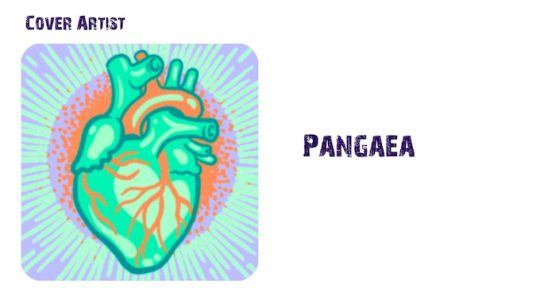
We can't wait to share with you the amazing cover art currently being created by amazing artist @pangaeastarseed.
Pangaea is a life-long artist and resident of the DC suburbs. A freelance illustrator with 20+ years experience, Pan’s work focuses on figure work and visual narratives utilizing the exploration of queerness, food as a love-language, and colors influenced by their florid synaesthesia.
Pangaea’s previous work includes custom illustration commissions and tattoo designs for clients; Starseed, an original gay-porn-space-opera comic, The Alien Dick Coloring Book, sketchbook zines Cardassia Prime and Cardassia Kotok, and the Washington DC-variant poster design of The Lambda Literary Awards 2022.
Portfolio: https://www.pangaeaillustrations.com/
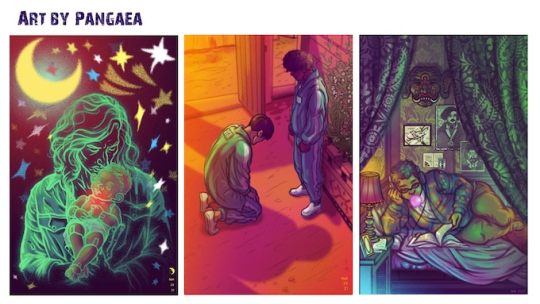
WHY KICKSTARTER?
We want to ensure that we produce the high quality product that we know we can! Whilst design, layout and formatting happens in-house, Kickstarter funds will help cover pay for our authors, cover artist and editor.
REWARDS
Add Ons!
We have a variety of extras available in the add-ons, from extra copies to special collected editions. Whilst we've tried to create reward tiers to suit everyone, the add-ons will better allow you to mix and match to your preference!
Our own @maxturnerwrites is once more offering some of his own work at discounted prices for supporters.

STRETCH GOALS!
£1000 : at £1000 we will add an Other Worlds bookmark for each physical backer
£1250 : at £1250 we will add an A5 print of cover art (without title) to each physical backer, and an e-copy of the same to each e-backer
£1500 : at £1500 we will add an Other Worlds tote bag for each physical backer
#kickstarter#call for submissions#open submission#short stories#speculative fiction#anthology#fantasy#folklore#horror#science fiction#writers of tumblr#writing
36 notes
·
View notes
Text
New Dean, Prof Ogonu, Takes the Helm at UNN's Department of Student Affairs
In a formal handover ceremony held on Friday, August 8, 2024, Prof. Edwin Ogechukwu Omeje, the outgone Dean of the Department of Student Affairs at the University of Nigeria, Nsukka (UNN), relinquished his position to Prof. (Mrs) Chika Ogonu, the newly appointed Dean.
During the ceremony, Prof. Omeje urged Prof. Ogonu to justify the confidence placed in her by the UNN authorities, emphasizing…
#Chika Ogonu#Department of Student Affairs#Edwin Ogechukwu Omeje#Handover Ceremony#new Dean#Nsukka#University of Nigeria#UNN
0 notes
Text
Have You Heard Of?

“A man who would be intimidated by me is exactly the kind of man I would have no interest in.”
Chimamanda Ngozi Adichie b.September 15, 1977
Chimamanda Ngozi Adichie is an award-winning author and an influential advocate of feminism. She has captivated people worldwide with her powerful storytelling and her outspoken campaign for gender equality.
She was born in Enugu, Nigeria, and was raised in an academic environment that surely nurtured her passion for writing. As one of six siblings she grew up in the university town of Nsukka, her Mother was the first female registrar at University of Masuka and her father was Nigeria's first professor of statistics, and later became Deputy Vice-Chancellor of the same university. She attributes her success in part to her parents for, encouraging her self-confidence and being supportive by always showing that they had confidence in her.
She began studying medicine and pharmacy at the university school her parents worked at; though, writing seems to have called to her, as she also edited the magazine created by the medical students. She left her medical studies after a year and a half when at nineteen she gained a scholarship to Eastern Connecticut State University in America, where she graduated summa cum laude (with highest honours) with a degree in communication and political science and continued her passion for writing by producing articles for the university journal.
She went on to gain her master’s degree in creative writing from Johns Hopkins University, become a Hodder Fellow at Princeton University, earned an MA in African Studies from Yale University, and she was awarded a fellowship by the Radcliffe Institute for Advanced Study, Harvard University.
During this time, she has released numerous novels, including A Feminist Manifesto in Fifteen Suggestions. She holds strong feelings regarding gender equality and is proud of her femininity, taking pleasure in fashion whilst grappling with the knowledge that she will be judged for the way she chooses to dress. Her belief is that you should be happy to be who you are, without being forced into a mould society has decided fits your gender. Refusing to conform to a female academic stereotype, she loves make-up and has been the face of Boots No7 cosmetics. Now married with a daughter, she splits her time between Nigeria, where she teaches writing workshops, and the United States.
All in all, Chimamanda Ngozi Adichie is a world-renowned writer, acclaimed academic, fashion icon, beauty queen and a feminist warrior we all should have heard of.

“If you criticise X in women but do not criticise X in men, then you do not have a problem with X, you have a problem with women.”
Books and Novels






Notable Awards and Honors
35 awards, 21 are literary awards, including:
Future… Award (Young Person of the Year category), 2008
Global Hope Coalition's Thought Leadership Award, 2018
Action Against Hunger Humanitarian Award, 2018
UN Foundation Global Leadership Award, 2019
Africa Freedom Prize 2020
Business Insider Africa Awards, 'Creative Leader of the Year', 12 April 2022
Influential people lists including:
The New Yorker's '20 Under 40', 2010
'100 Most Influential Africans 2013', New African
'100 Most Influential People' by Time Magazine, 2015
Fortune Magazine's List of 50 World Leaders, 2017
'World's Most Inspiring People in 2019' by OOOM Magazine
Forbes Africa's '100 Icons from Africa', 2021
'Changemakers: 100 Nigerians Leading Transformational Change', 2022

“Teach her to reject likeability. Her job is not to make herself likeable, her job is to be her full self, a self that is honest and aware of the equal humanity of other people.”
Trivia
Her childhood home was one formerly occupied by the Nigerian writer Chinua Achebe
Beyoncé's song, "Flawless," features excerpts from Adichie's TED Talk.
Adichie thought she had invented purple hibiscus & was shocked to receive a call from her editor telling her they existed in America!
#Have You Heard Of#Chimamanda Ngozi Adichie#Purple Hibiscus#Half of a Yellow Sun#Americanah#We Should All Be Feminists#Feminism#Nigerian Author#Literary Influence#Gender Equality#Beyoncé Flawless#Feminist Literature#Book Recommendations#Author Spotlight#Literature#Women Writers#Diverse Voices
5 notes
·
View notes
Text
Celebrating Black History Month: Chimamanda Ngozi Adichie
On a mission … celebrating Black History Month with amazing and inspirational Black Women for the rest of the month and continuing into March to celebrate not only inspirational Black Women but International Woman’s Day.
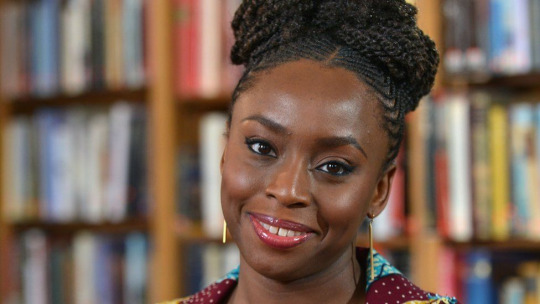
Born September 15, 1977 (45 years old) Enugu Nigeria
Chimamanda Ngozi Adichie grew up on the campus of the University of Nigeria, Nsukka, her father was a professor there and her mother was the first female Registrar there. she graduated from Eastern Connecticut State University with a degree in Communication and Political Science. She also has a Master’s Degree in Creative Writing from Johns Hopkins University and a Master of Arts degree in African History from Yale University.
She has written several books and has appeared on TedTalks
Chimamanda Ngozi Adichie: The danger of a single story | TED Talk
She is best known for her themes of politics, culture, race and gender. Her novel, short stories, and plays have all received both public and critical acclaim. She warns that if we hear only a single story about another person or country, we risk a critical misunderstanding.
R. J. Davies
A Riveting Jacked-In Dreamy Mind-Bender
RJ Davies - Science Fiction Author, Maddox Files, Novels
#R. J. Davies#R. J. Davies Author#Rhonda Davies#Rhonda Davies Author#Rhonda Joan Davies#mystery author#science fiction author#author of Maddox Files#Celebrating Black History Month#BHM2023#Chimamanda Ngozi Adichie#International Women's Day
34 notes
·
View notes
Text
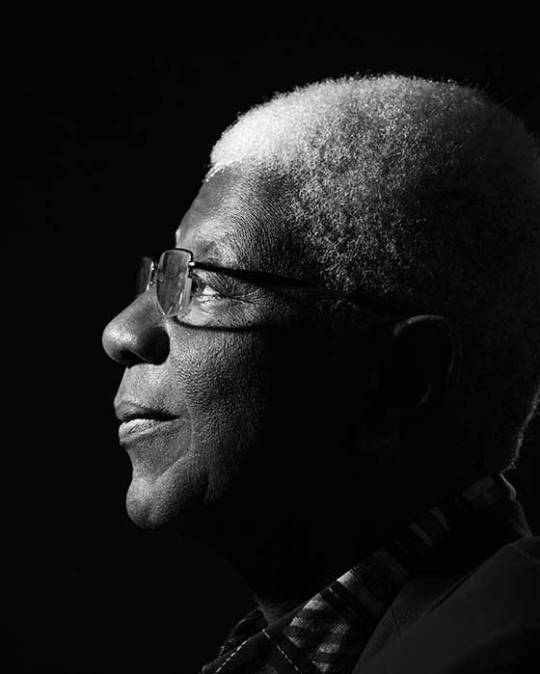
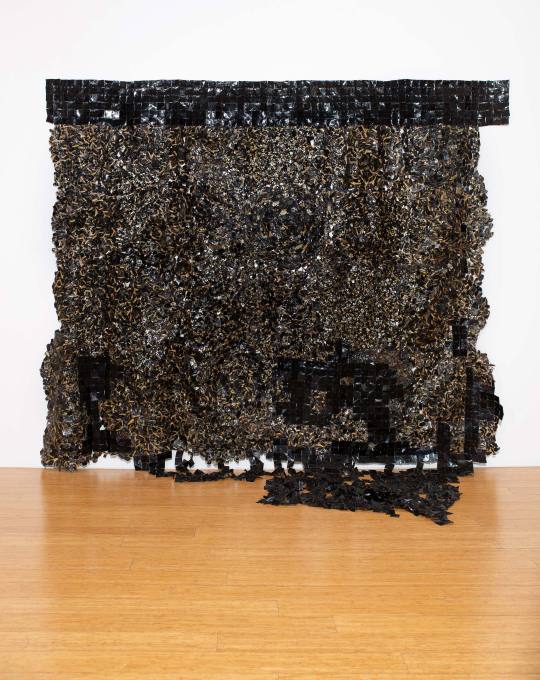
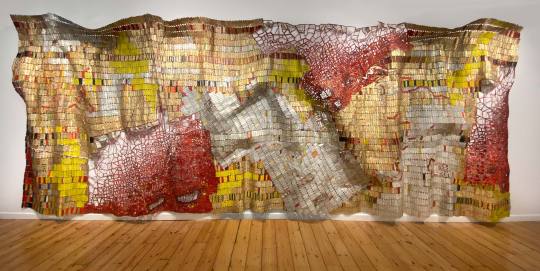
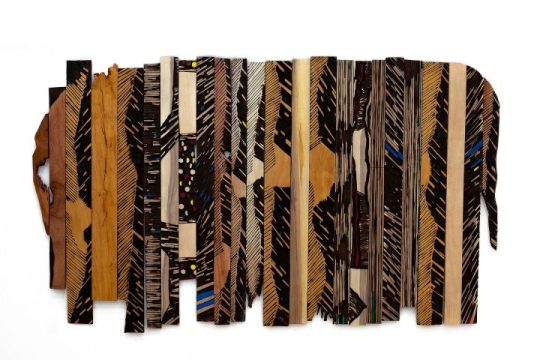
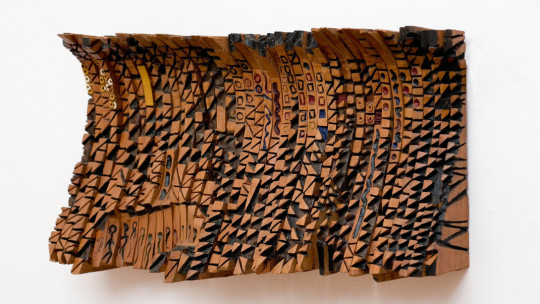
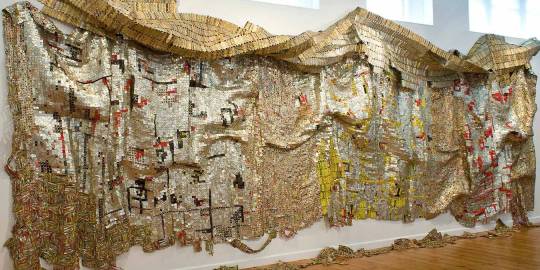
EL ANATSUI is a Ghanaian sculptor who has spent much of his achievement-packed career living and working in Nigeria.
El Anatsui was born in 1944 in Anyako, Ghana, a citizen of the Ewe Nation and son of a master weaver of Kente cloth. He acquired art training at the College of Art, Kwame Nkrumah University of Science and Technology in Kumasi, one of the highest-ranking universities in Ghana. In 1975, when he had graduated from the university, El began teaching at the Fine Arts Department, University of Nigeria, Nsukka. He taught at UNN for over four decades as a Professor of Sculpture.
13 notes
·
View notes
